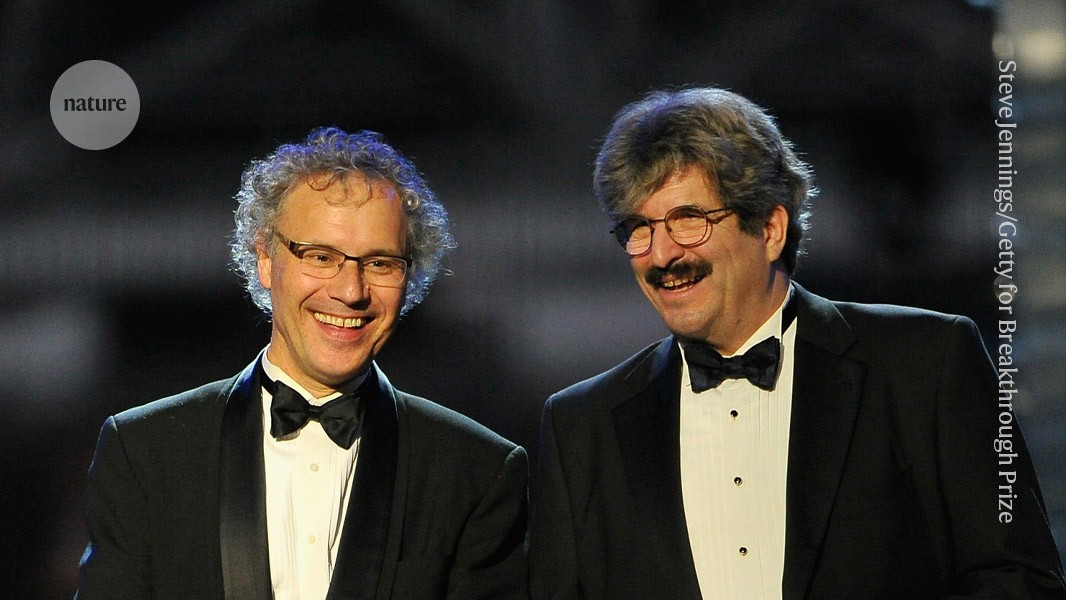Medicine Nobel awarded for gene-regulating ‘microRNAs’

Victor Ambros and Gary Ruvkun identified a class of tiny molecules that have a crucial role in controlling gene expression

Victor Ambros (left) and Gary Ruvkun (right) discovered microRNA, a type of molecule that helps to regulate gene activity in our cells. Credit: Steve Jennings/Getty for Breakthrough Prize
The Nobel prize in physiology or medicine has been awarded to two geneticists who discovered microRNAs, a class of tiny RNA molecules that help to control how genes are translated in multicelllular organisms.
Victor Ambros, who works at the University of Massachusetts Medical School in Worcester and Gary Ruvkun at Harvard Medical School in Cambridge, Massachusetts, share the prize pot of 11 million Swedish kroner (US$1.1 million), awarded by the Nobel Assembly at Karolinska Institute in Stockholm, Sweden.
The discovery “has opened up a new field in gene regulation”, said Nobel committee member Olle Kämpe, an endocrinologist at the Karolinska Institute, at a press conference announcing the prize.
“Although there are no very clear applications available yet with microRNAs, understanding them, knowing that they exist, understanding their regulatory networks is always the first step,” said committee chair Gunilla Karlsson Hedestaman, an immunologist at the Karolinska Institute.
doi: https://doi.org/10.1038/d41586-024-03212-9
This is a breaking news story that will be updated throughout the day.
Additional reporting by Helena Kudiabor.
This story originally appeared on: Nature - Author:Katharine Sanderson


















